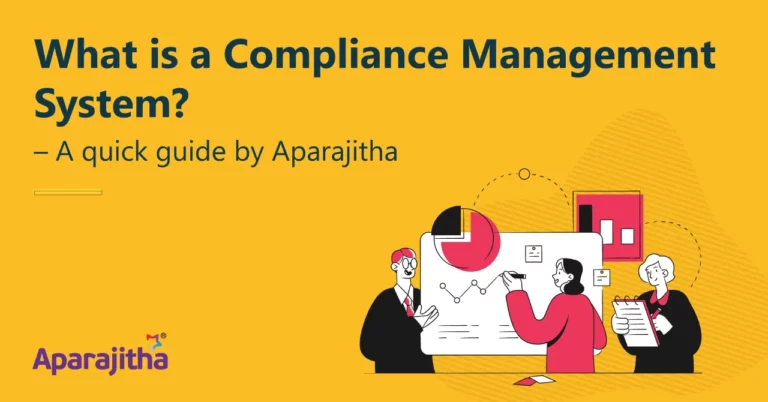Amidst the perpetual flux of the corporate realm, where innovation propels progress and regulations morph at every turn, one cornerstone remains steadfast: Labor Law Compliance. As we are approaching the middle of 2024, the backdrop against which companies shape their success stories grows more intricate, defined by legal mandates and ethical obligations. In this era of rapid transformation, mastering the art of navigating labour law complexities is not merely a requisite; it’s a strategic imperative. Particularly in India, companies are required to uphold stringent compliance with labour regulations, not only to safeguard the rights of their workforce but also to cultivate a climate of amicable rapport between employers and employees, thus fostering sustainable business practices founded on ethics.
This definitive guide embarks on a journey through the labyrinthine corridors of labour law compliance, equipping both stalwart HR professionals and curious employees in kind with the indispensable strategies and tools essential for thriving in the pulsating heart of the modern workplace.
What are the essential labour laws employers must comply with?
The Indian Labour Law regime has been developed over a period of time, with great emphasis to Human Rights, Social Welfare as well as ensuring adequate working conditions. The plethora of the laws are mandatory in order to ensure that the goals of the nation are achieved. Therefore, there must be compliance towards all laws and not just any particular law, in order to avoid legal issues like fines and lawsuits. Violating them or not complying with these regulations can hinder a company’s growth and reputation.
Let us see the essential labour laws that any employer must comply with.
1. The Industrial Disputes Act, 1947:
It is a crucial law that addresses conflicts in workplaces and defines procedures for handling employment situations, including staff reductions, layoffs, and terminations.
2. The Minimum Wages Act, 1948:
This law was enacted to ensure that a minimum fair amount is paid as a wage to every employee by their employer. The slab for minimum wages may vary from state to state and region to region as there are new and revised policies and updates in the rates from the government.
3. The Employees’ Provident Funds and Miscellaneous Provisions Act, 1952 (EPF):
One of the most well-known social security law is the Employees’ Provident Funds and Miscellaneous Provisions Act (EPF Act) of 1952. Most employees are familiar with it and appreciate its benefits. The EPF Act mandates employers to contribute to a retirement savings scheme for their employees. Employers deduct a portion of the employee’s salary and deposit it into the employee’s EPF account, and they also contribute a matching amount.
4. The Employees’ State Insurance Act, 1948 (ESI):
The ESI law was enacted to ensure that the employee and their family benefit from medical and financial support during instances of illness, maternity, disability, or death resulting from workplace injuries. Employers will contribute to the Employees’ State Insurance (ESI) scheme, which funds these benefits.
5. The Payment of Bonus Act, 1965:
According to this act, the employer must provide a bonus amount to the employees based on the company’s profit and evaluation of the employee’s performances. There is a preset formula for the bonus calculations by the government.
6. The Factories Act, 1948:
This law was enacted to monitor the working environment within factories and aimed to safeguard the health, safety, and well-being of the employees in the manufacturing operations. A wide range of factors such as working hours, safety hours, safety provisions, sanitary provisions, and hazardous occupations are a part of this.
7. The Maternity Benefit Act, 1961:
This law was enacted to benefit the married and working women during their maternity. It requires employers to grant paid maternity leave and benefits (including allowances and medical coverage) to support them throughout pregnancy and childbirth.
8. The Sexual Harassment of Women at Workplace (Prevention, Prohibition, and Redressal) Act, 2013:
Under this act, every employer must ensure a safe working environment for their female employees and ensure that an internal complaints committee is framed to address the harassment issues faced at the workplace.
What are the consequences of non-compliance with labour laws?
Failure to comply with labour laws will result in various penalties and consequences for both employer and employee and the whole organization, which will question the company’s reputation resulting in the worst circumstances. Here are some of the potential consequences of non-compliance with Labour laws:
- Employers who fail to adhere to the labour policies and laws will encounter legal consequences including fines, penalties, or lawsuits from government authorities tasked to enforce these regulations. These penalties vary based on the severity and frequency of the violations.
- Lawsuits and Legal Disputes: Non-compliance with labour laws will potentially lead to lawsuits filed by the employees or unions alleging violation of their rights. Legal disputes can be expensive litigations, spoiling the company’s reputation, financial settlements, or judgments against the employer.
- Non-compliance can damage the organization’s fame and reputation resulting in adverse publicity, loss of trust among stakeholders, challenges in recruiting employees, and retaining the employees and customers.
It will also lead to employee dissatisfaction and may make them feel undervalued or mistreated if their rights are not valued, resulting in low productivity. - Some companies may not prefer to join hands with an employer or company having a bad reputation due to labour law violations ending in missed business opportunities.
- Non-compliance with labour laws will grab the attention of regulatory bodies, leading to more and more administrative tasks and frequent audits and inspections that may consume your quality time resulting in low productivity.
- Failure to comply with labour laws will affect the employer-employee relationship and diminish the trust between management and staff, which hinders teamwork and collaboration within the organization.
How can businesses stay updated on changing labour laws?
Businesses must stay updated through several sources including digital and automated tools and technologies. Here’s the guide on a few:
Regular Monitoring: Designate a team or individual to monitor changes in labour laws at all levels.
Government Sources: There are many governmental platforms such as official websites of labour law departments, e-newsletters, and publications that can be a good source of information.
Legal Counsel: You can have a tie-up with any legal advisors, labour law advisor near you, or labour law consultants who specialize in labour law to get guidance on the recent changes and updates if any.
Industry Associations: Join the trade groups and associations that provide resources, webinars, seminars, discussions, and workshops focused on ensuring compliance with labour laws.
Subscription Services: Subscribe to legal platforms, online sites, and e-newsletters that offer up-to-date information on labour law compliance in India.
Digital Tools: Out of all the other sources mentioned, ‘Digital Tools’ is one of the best and unique options for receiving seamless updates. There are a few AI-driven digital tools in the Indian market that take care of businesses’ labour law compliance services beyond sharing insights and updates in the labour law sector.
Many companies are embracing digital tools and automated solutions to simplify their work of keeping abreast of the continuously evolving labour laws. Especially in India where AI and ML are embraced, several automated digital tools take care of labour law compliance in India. By integrating these tools you can be aware of real-time updates, analysis, and compliance solutions enabling businesses to navigate the intricacies of labour regulations with great ease.
Ready to ensure your business stays compliant with labour laws in 2024 and beyond? Aparajitha is the one-stop shop for all your labour law compliance needs, equipped with automated digital tools and tech-driven compliance services to streamline your processes and mitigate risks.







